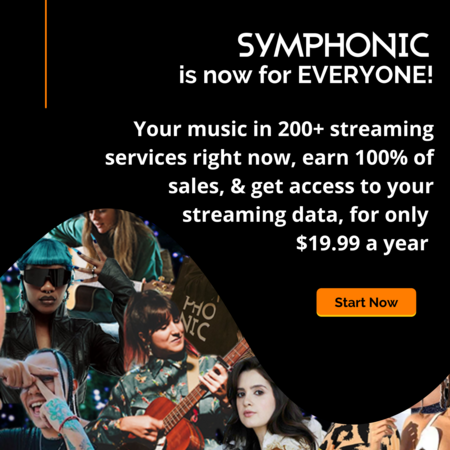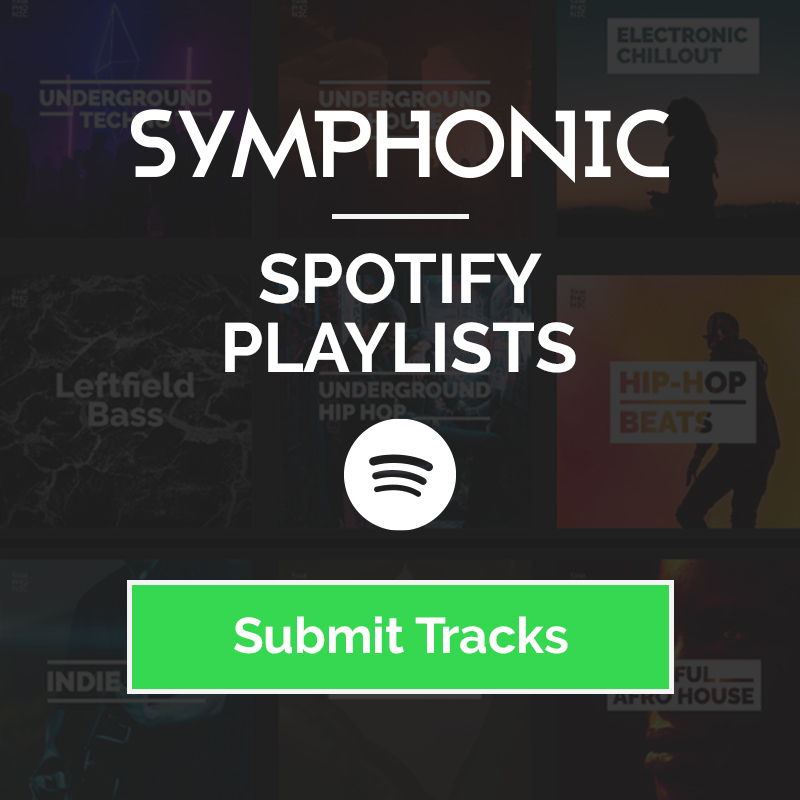
by Francesca | Feb 8, 2024 | Music Industry
Job hunting. We’ve all done it, and most of us will continue to have to do it until retirement comes along. Indeed and Glassdoor are great for seeing everything and anything all at once, but what if you’re tired of wasting your time sorting through thousands of unrelated jobs? Believe it or not, there are job sites just for us music biz folks. Here are some of the best music industry job sites to help you land your next job…
9 Music Industry Job Sites To Help You Land Your Next Job
The Digilogue
The Digilogue is a diverse community of creators and industry professionals in music and tech. They curate conversations and programming around industry education, artist discovery content, and a great career resource on their website. Under their Music Careers tab, click on Job Postings, and you’ll find tons of job listings up for grabs. // Check it out for yourself on their website here.
Music Business Worldwide
This site is one of the best resources for anyone looking to broaden their horizons in the music biz. Music Business Jobs is a website for the global music industry to find the best candidates for their open positions. They post openings all over the country, and you can filter results by location, companies, and job type. // Check out what’s available right here.
Doors Open
The world of electronic music is shaped not only by artists and fans, but also by thousands of small businesses, from clubs to booking agents to publishers and promoters. If you’re looking to work in the electronic music scene, this resource is for you. Doors Open is a place for people to connect with companies and projects they believe in, and for independent music companies to find the staff they need to turn ideas into reality. // Check ’em out here.
Shesaid.so
Shesaid.so is a global community of women and gender minorities in the music industry. They’re absolutely awesome, and they happen to also provide a very useful job portal tab on their website where you can browse open positions and apply. // Click here to see what’s available.
Music Careers
Music Careers is built for music professionals by music professionals to help you find your next job in the music industry. They post up to date jobs, refresh every 30 days, and give you the ability to refine your search by specific niches within the industry. They even post freelance opportunities, too. // Check out what they’ve got to offer here.
Digital Music News
You may already be a fan of Digital Music News‘ industry articles to keep up to date on the latest news, but have you checked out the jobs tab on their website? There, you can check out music industry jobs from major record labels and streaming services to universities, merchandising companies, startups, and more. // Check it out here.
A2IM
A2IM has their own job board to help you find your perfect position. Whether you’re looking for temporary work, an internship, or full-time, their database can search jobs by keywords and location. // Check out jobs on A2IM here.
Music Jobs
Music Jobs is part of a global publication and online community which brings their subscribers industry opportunities and daily news from the world of film, TV, music and gaming. On their site, you can also sign up and subscribe to emails with job opportunities tailored specifically to what position you’re looking for. // Click here to check out the site and search for jobs.
Entertainment Careers
Entertainmentcareers.net is a great site which features jobs in in Film, Television, Music, Production Companies, Radio, Animation, Acting, Production, PR, Design, and more. Whether you’re interested in the music industry or something adjacent, this is the ultimate place to check. // Browse available jobs on their site here.
You got this!
⚡️

by Francesca | Jan 25, 2024 | Legal
This information is brought to you by Debbie Egel, an attorney whose practice includes writing and reviewing music contracts, running an independent label for over 10 years; and developing indie artists. She is knowledgeable of the economics of music, the DIY process, and has written an instruction manual for Indie artists, labels and managers called “For The Record” and teaches an on-line course. Debbie has a deep appreciation of the business of music as well as her legal knowledge as a practicing attorney. We are sharing it with you here to give you a sense of some of the decisions and complexities involved in these questions. Streaming Promotions does not provide legal or tax advice. You should consult with your personal legal and tax professionals regarding your specific situation before making any decisions.
When it comes to major record deals, there are a lot of things to consider. That’s why it’s important to always get a second, or even third, set of eyes on anything that requires a signature and involves your finances. Here’s what to look for before you dive in…
How to Know if Signing a Recording Contract Is Right For You
You LOVE music, and you have been working hard, creating and recording music. You’re also keeping up a social media presence, getting gigs, taking photos and posting, getting your look right, releasing and marketing music and the list goes on and on. Now you figure it must be working because someone has reached out and is speaking to you about signing a record deal.
While many artists view a record deal as the solution to their problems, look before you leap.
Record labels can be great opportunities to get your music in front of an audience and help you build fans. Labels can provide support in terms of production, marketing, legal knowledge and access to experienced industry vets. It takes a village and no one can do this alone. However, you should be careful, thoughtful, and selective before you sign on the dotted line.
The contract will be defined as binding you for a period of years or a number of singles or albums that have to be delivered to fulfill the agreement. The contract is like signing a marriage license. It is basically a relationship, and it is important to date before you get married. So how do you know if a record deal is the right move for you? First and foremost…
Do Your Homework
Artists should be paying attention to these items:
- What is the label’s track record with your genre?
- Do they have a website?
- Do they have artists that have been signed fared well?
- Is there already an act signed that sounds similar to you?
- What can this label do for you that you can’t currently do on your own?
- Have they listened to your music? What do they have to say about it?
- Have you spoken to them and what is their plan for you moving forward?
- What type of assets can they provide such as production, marketing, finances etc.?
- How long does the contract bind you?
- Has the company asked you about split sheets, production agreements for your current music.
- Philosophically, do both parties to the agreement have the same vision for the music?
If the relationship is a failure, it can often mean the ruin of an artistic career. So be careful!
What do labels look for?
Truth be told, artists working independently can only get so far before needing a bigger team. Labels can be that team, helping you increase your reach and overall success. However, this costs money.
Like any successful business, if you need a large injection of money in order to get to the next level, you must be able to recover that investment. With record sales declining and streaming income at an all time low, record companies need better ways to secure their investment. For example, like a 360° contract, which is used to potentially make a profit from their investment.
How have you built your fanbase? Are they buying your projects? Look at it like this: if you’ve been pumping out nothing but free albums, do you really anticipate them buying your major label debut if you haven’t put any value on your music beforehand?
What else do they consider?
Labels also typically consider physical attendance at your shows and whether you can sell units or derive money from streaming. They also look at your other income streams, like merch and touring.
Remember, both sides have to benefit or else the relationship is not going to be successful.
What you should know at the table…
Contract terms depend on the bargaining power of the artist. A new artist with no real history of earnings will not get the same terms as an artist with a proven record of strong earnings.
These terms can include:
- Royalty rates
- The number of songs to be delivered
- What costs the record company will pay for
- The amount of money the record company will spend on social media campaigns
- What type of music production support they can provide
- Whether the record company will also participate in the money earned from music publishing, merchandising and live performances.
If you have confidently answered these questions and are willing to give up a percentage of your earnings, it’s time to contact an attorney to review the deal.
From a legal standpoint, a contract that is well written and contains clear and unambiguous deal terms is off to a good start. Just make sure to use an entertainment attorney that understands these terms and can fight for you during contract negotiations.
IMPORTANT NOTE: Think twice about using an attorney the label directs you to!
In Conclusion…
It is important to point out again that team work makes the dream work. The progression in an artist’s professional career is to attract a label that provides all the necessary elements to get you to the next level. Having said all this, focus on making the best music you can and building your fan base. It all begins and ends with GREAT music. If you’re making waves, labels will come to you, and that’s a much better position to be in anyway.

by Francesca | Jan 4, 2024 | Music Industry
Touring internationally can be one of the best experiences of your life… if you plan it properly. Without enough detailed planning, the whole thing could fall apart and put you in more debt than when you started. That being said, how do you know if it’s the right time to pursue an international tour? How do you get started if it is?
In this post, we’ll cover everything you need to know about going on tour overseas without getting lost in a (possibly) literal jungle.
Things You Need to Know About Touring Internationally:
How to know if you’re ready
Going on tour at all requires having an audience that will show up to your shows. Plain and simple. If you typically only have fans in your local scene, it doesn’t make sense to spend the immense amount of money it takes to tour just to play for empty venues in another country.
That being said, if you have a large following online and you frequently get DM’s and messages like, “Come to Brazil!” or “Please do a show in London!!” that’s a good sign you need to expand beyond the U.S.. Truth be told, you’ll know when the time is right. Your fans will demand it.
How to decide where to tour
How you choose where to tour is monumental in ensuring your overall success. With the help of Spotify and SoundCloud analytics, booking a tour has become almost an exact science. These tools let you see which tracks your audience is listening to the most and where those plays are coming from. So, if you want to optimize the chance of having sold out shows at every venue, gathering this background info will tell you exactly what your audience wants to see more of, so you can perfectly deliver every time.
Check out: How to Book a Tour Using Spotify and Soundcloud Analytics to learn more.
Figure out your passport situation
This should be obvious, considering you need a passport to travel literally anywhere out of the country at all, but many people put this off until the last minute and assume everything will be fine and dandy. Please do not be one of those people.
If you overlook properly securing your passport and making sure it’s all up to date, you could end up planning and booking an entire tour just to get to the airport on the day of and be turned away because of your freakin’ passport. That’s months of wasted time and a ton of hard earned money down the drain. Before you even start planning the tour, get your passport(s) in order.
Find out if you need a work visa
Okay, so technically you could be shady and choose the illegal route here, aka doing gigs and hoping the government doesn’t find out. However, we advise against that for obvious reasons. We understand you may not want to shell out the extra money to pay for a visa, but think about the alternative. Without one, your gear could be confiscated, you’ll be forced to miss tour dates, and you’ll lose way more money than you ever want to lose.
The best thing you can do is research the places you’re planning on going, see what’s legally required of you, and do it. Some places don’t require any documentation, but some do. It’s always better to be safe than sorry (and broke).
Transportation
If you’re going somewhere like Canada or Mexico, there’s not much to worry about since you can drive you and your equipment however you normally do in whatever vehicle you normally use. However, what if your tour is in France? Or Sweden? This is where your expenses are really going to add up.
Don’t worry, you’ve got some options. In many places, traveling by train is a great option if you travel light and plan on renting all your equipment. However, if you have all your gear in tow, this is no longer an option. In that case, your best bet is to rent a van. Don’t have enough money? Try to borrow a van from a local band in that area or schedule your shows together so you can carpool. Use all the resources available to you.
Additionally, in most european countries, Americans can drive with their American license just fine for short periods of time. However, some places require you to have an International Driving Permit. Again, always do your research.
Some things to remember:
- Many countries have different electricity voltages and outlet plug shapes. Make sure you have adaptors.
- Amps are heavy as shit. Rent them when you get there.
- When renting anything, get multiple quotes to avoid being taken advantage of.
- Bring a physical map (cue shocked gasp) just in case something happens to your smartphone.
- Plan out how payments are going to be allocated between bandmates beforehand to avoid any and all arguments.
When it comes to planning something as big as touring, you can’t be too prepared. Make sure you have back-up plans for your back-up plan. You’ll be saving yourself a lot of stress in the long run if you do.
Yes, touring internationally is a lot of work. Hell, touring anywhere is a lot of work. But going on tour can be the most fun you’ll ever have and it’ll foster amazing memories you’ll cherish forever. You’ll learn a lot and evolve as you go, and that’s the beauty of it.
Be smart, always do your research, and let the good times roll.

by Francesca | Dec 13, 2023 | Music Industry
Self publishing your music comes with a lot of benefits. You don’t have to share your copyrights with anyone, you aren’t bound to any publishing deals and you get ultimate control over where your work is used and how. Keep in mind, self publishing isn’t for everyone. You need to be able to commit significant time and effort to doing everything a publisher would usually do and more. But if this is something that you’re ready to take on, here’s how to do it right.
How To Self Publish Your Music
Let’s Talk Basics…
Self publishing your songs means you take on the role of both the artist and the publisher. Being a self-published writer ultimately means that you hold all the rights to your Intellectual Property (IP), which means you would be in full control of how your compositions are used and would receive all royalties associated with your share of your compositions.
This is awesome, but these perks come with a little extra work. If you’re still interested, here’s what you’ll need to do to self publish your songs…
Step 1: Make Sure Your Music Hasn’t Been Published Yet
If you’ve worked with a distributor before, you may have opted in for publishing services without even realizing it. For example, our publishing administration services are very popular with our own clients. Before you do anything, definitely make sure this doesn’t apply to you.
Step 2: Register with a PRO
In order for you to receive the royalties you’re rightfully owed, your songs need to be properly registered with a Performing Rights Organization like ASCAP, SESAC or BMI. PRO’s rely on the information you provide to determine who they need to pay and how much.
Start setting up your company by going to either www.ascap.com or www.bmi.com to obtain/fill out an application.
- If you are a songwriter and have not yet affiliated, make sure to only do so with only one of these, not all of them.
- To ensure you do everything right, check out this post to make sure you don’t miss anything.
Step 3: Sign Up with the MLC
The Mechanical Licensing Collective maintains the world’s most thorough database of music composition copyrights and their owners. They collect mechanical royalties from digital music streaming services and transmit those royalties to copyright holders based on the ownership claims.
Signing up with them ensures that you get all the royalties that are rightfully owed to you. You’ll need to “Connect to Collect” and become a Member of the MLC in order to collect the digital audio mechanical royalties owed to you.
Step 4: Time to Promote
Once you’ve completed those steps, you can finally start getting your publisher’s share on top of the writer’s share. Now is the time where the duties of a publisher fall onto you.
Typically, your publisher would be the one networking, seeking out sync deals for TV and film, registering copyrights, negotiating licenses, and more. When you self publish, it’s all on you.
In Conclusion…
Self-publishing typically just entails registering with a PRO to be able to manage and publish your own compositions, but it doesn’t have to end there. If you want to go even further, become a publisher and start your own publishing company! Doing so lets you do everything yourself and also gives you the ability to relay your services onto other artists who need it.
You got this.

by Francesca | Nov 30, 2023 | Music Marketing
As intimidating as it seems, consistently releasing new music (every month or even every week, if you believe that works for you) has many undeniable benefits. Aside from making your fans happy to hear more from you, this practice does a lot of good for artists at any level. In this post, we’ll give you 6 reasons to release new music consistently. Here’s the rundown…
How Releasing Music Consistently Can Improve Your Career
Increased Engagement
Consistency is good for engagement on any platform, no matter what you’re into. Want to get better at production? Practice every day. Want to improve your vocals? Sing every day. The same theory applies to putting out music. The more you do it, the most traction it’s going to get. And let’s face it… your fans want as much from you as they can get. When you release new music, on any platform, the amount of people who will interact with it will grow right along with you. Not to mention, from the fan point of view, there’s something exciting about being able to expect something new from your favorite artist every week.
Go Viral on TikTok
TikTok also thrives on consistency. The more you post, the better your chances of it being caught up in the wave of a random trend. Every time you release music, use it to make little TikTok babies. Whether you use it to follow existing trends or to try and create new ones, the more you post the better.
Not sure how to figure out what’s trending right now? No problem. We did a whole post right here that gives you 6 of the best ways to find the hottest trends right now. And if you’re new to TikTok, here are some helpful resources to help you thrive…
Grow Your Catalog
Releasing music more frequently helps you grow your catalog significantly faster than if you waited every 6 months. This can be advantageous for streaming platforms, as the more songs you have increases your chances of being discovered through playlists and algorithms.
If you already have an extensive back catalog, did you know there are things you can do with it to keep the momentum going behind the scenes while you work on new things? Check out, “How To Maximize your Back Catalog While Working on New Releases” to learn how.
Build Momentum
Releasing songs consistently is a great way to build momentum for something bigger down the line. If you plan on going on tour or releasing a full album later in the year, you can hype up the day to come on socials with every release more often. Get everyone on board and offer incentives for streaming your tracks. If they like what they hear, they’ll share your work with their friends and grow your audience one release at a time. When whatever big day finally arrives, you’ll have a whole team of people ready to experience the fun and share it on socials.
Better Chances for Sync
If you want to get featured in movies, TV, commercials and more, it doesn’t hurt to give sync reps a lot to choose from. Although having a lot to choose from does technically help your chances, what kind of music you have out also plays a part.
Jon Mizrachi, the Senior Director of Sync Licensing for our in-house sync licensing division, Bodega Sync, explains:
“If you really want your music to stand out, it’s important to understand that songs are used in sync to support a narrative, not to tell one. If there’s a sad montage where someone dies, you’re not going to hear a song with lyrics about someone literally dying… Even in advertising, which is typically far more literal, music will be used to add depth to whatever you see in the footage or hear in the voiceover. You know what’s not a great song for Toyota? A song about Toyotas.”
So, if you really want to focus on optimizing your music for sync, try to create universal songs that aren’t too specific. If the goal is to connect with the listener, you have to craft your songs to be as relatable as possible. In addition, once one of your songs gets featured, the chances of your other songs getting chosen for other sync opportunities goes up, too. The more music you have, the higher chance of something being perfect for that new TV show hitting the market.
Practice Makes Perfect
Putting out music more often gives you the chance to really experiment with your personal sound. You can try new things and see how your audience reacts and if it doesn’t quite hit, no big deal! Try something new the next time, and keep it moving.
At the end of the day, I realize putting out music consistently is no easy task. Depending on your music, it may even be impossible. If you specialize in full blown musical arrangements for every track or don’t have frequent access to a studio, finishing a full song on a monthly or even weekly schedule is insane to even fathom. At the end of the day, it is up to you and this is an idea to try out where it makes sense. Challenge yourself to at least try, and see how it works for you.
Good luck!







